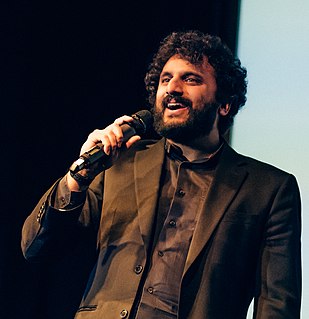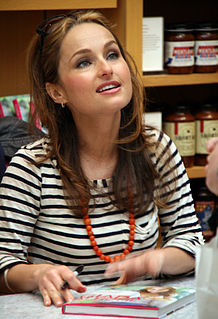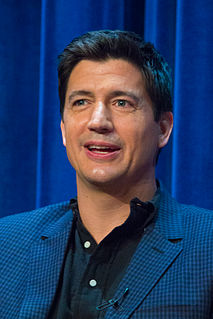A Quote by Jim Carrey
I try to do something the audience might not have seen before.
Related Quotes
It's one of the underappreciated skills required by an innovator - they have to be able to convince lots of people to do things that might not be fully rational (invest in the company, join something that is likely to fail, try a product they've never seen before), and if you can't tell a good story it is just very hard to make that happen.
The beauty of shooting on something that's not in front of an audience is that you can just cut out the times you're laughing. You can cut to the other person and try to use that moment, right before you break. There's an energy to those performances. There's a reason people were laughing. There was something very special. That little extra something was in that line delivery or in that improv, so you try to use that stuff.
The thing is, if people get it right away, I just don't think you're making art. I think you're making something they're comfortable with. You have to challenge people. You know, it has to be new. It has to be something they haven't seen before. Just bring them something they haven't seen before. They aren't going to love it right away because they haven't seen it before. So they have to take a minute, you know?
If you're playing a good guy, you show some darkness. If you're playing a dark guy, you show something different, like humor, that will mix it up and hopefully surpass the audience's expectations. What I'm battling all the time is complacency in the audience. I try to bring a little mystery to what might happen because that engages people more.
The next time I write a play - in order to get audience trust for a particular sort of tragic line, I'll try to bring the audience a good distance before that. Part of that is allowing comic moments to occur. I had been afraid of that - that once the audience started laughing in the play, they would never stop.

































